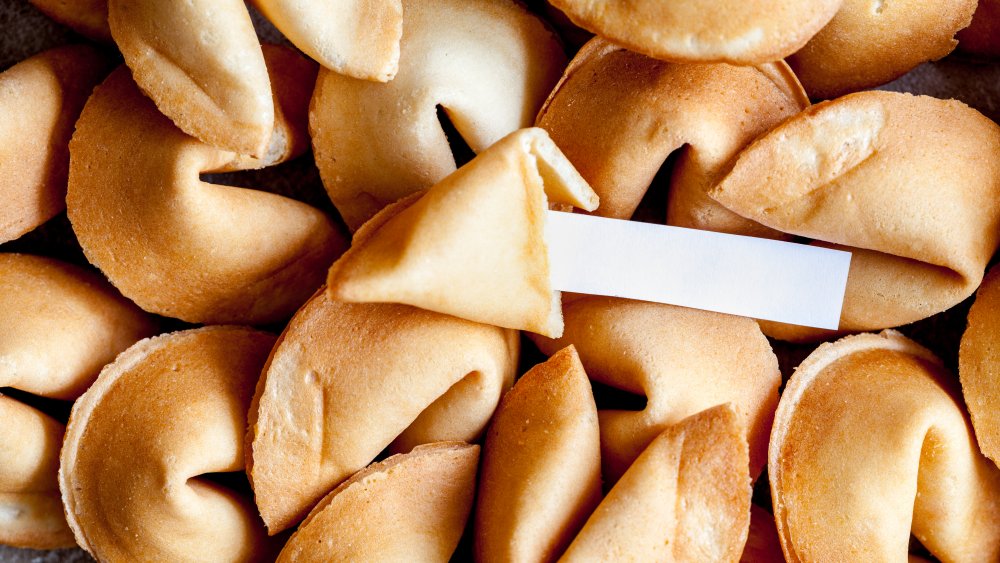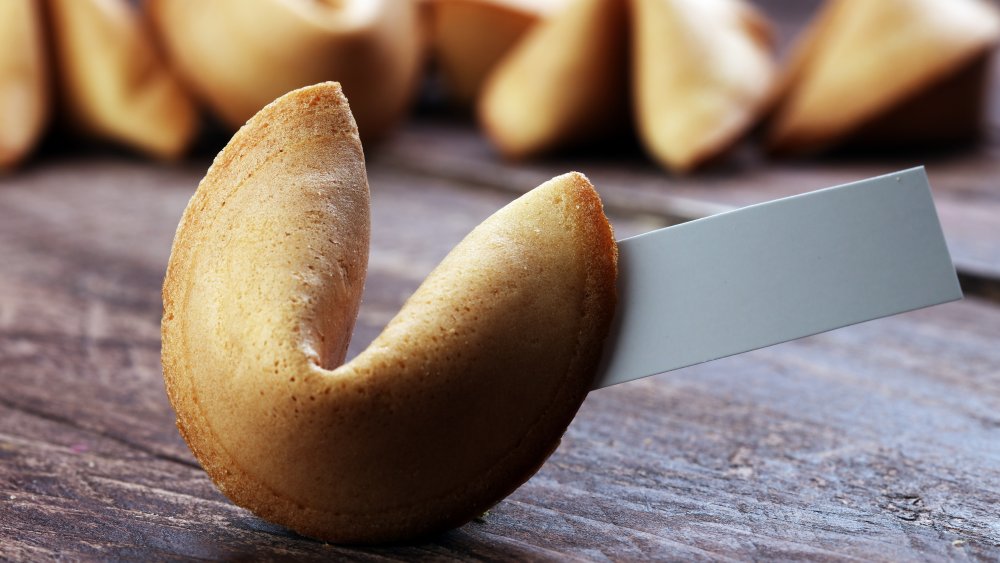Where Fortune Cookies Were Really Invented May Surprise You
If you have a hankering for sweet treats and vague statements printed on tiny strips of paper, fortune cookies will feed your need. Their platitudes can sound every bit as hollow as the sugary shell they came in. Perhaps you've come across this gem, which is apparently so profound and informative that it earned a spot on the Geometry page of Rockwood High School: "The best angle from which to approach any problem is the TRYangle." Is that even technically a fortune – or any kind of meaningful statement for that matter? How a geometry pun can seem so shapeless is one of life's little mysteries. One of life's bigger mysteries is how fortune cookies came about in the first place.
It might seem intuitive to think that the first place to make fortune cookies was China. Heck, if you order food from a Chinese restaurant in the United States, you probably know ahead of time that there's a fortune in your future. Not only would that make you better at predictions than these cookies, but it arguably cements an association between the world's tastiest fortune tellers and Chinese cuisine – albeit Americanized. Depending on whom you ask, however, any attempt to tie China to the invention of fortune cookies would crumble under scrutiny. Unfortunately, even when you remove that myth from the equation, disagreement is baked into the origin story of fortune cookies. The best we can do is approach the problem from the TRYangle.
Where fortunes and fortune cookies were made
Appropriately enough, the fortune cookie was born in a place where people have often traveled in hopes of making a fortune: California, whose rich history includes the Gold Rush, Silicon Valley, and Hollywood, according to KQED. Per the Spruce Eats, when it comes to crediting a specific inventor, sources typically list one of two men: Japanese immigrant Makoto Hagiwara, who looked after San Francisco's Japanese Tea Garden, or Chinese immigrant David Jung, who operated the Hong Kong Noodle Company in Los Angeles.
Hagiwara, who settled in San Francisco in 1895, appears to have begun spreading his good fortune cookies to people in the tea garden between 1907 and 1914. But rather than dabbling in food-based soothsaying, he may have been dispensing thank you notes stashed in cookies in an attempt to regain a job he lost at the hands of a mayor.
Jung, by contrast, didn't set foot on U.S. soil until 1916 and claimed to have created fortune cookies in 1918. In his version of events, the fortune cookies contained Bible scripture (via Eater). Hopefully, they were prophecies from the Book of Revelation. However, it evidently took the book of judges to issue an official verdict on the inventor. In 1983, San Francisco's Court of Historical Review ruled that Hagiwara deserved the credit. Even so, dissenters in Los Angeles might object that injustice was served. Maybe the best way to approach the problem wasn't the trial angle.

